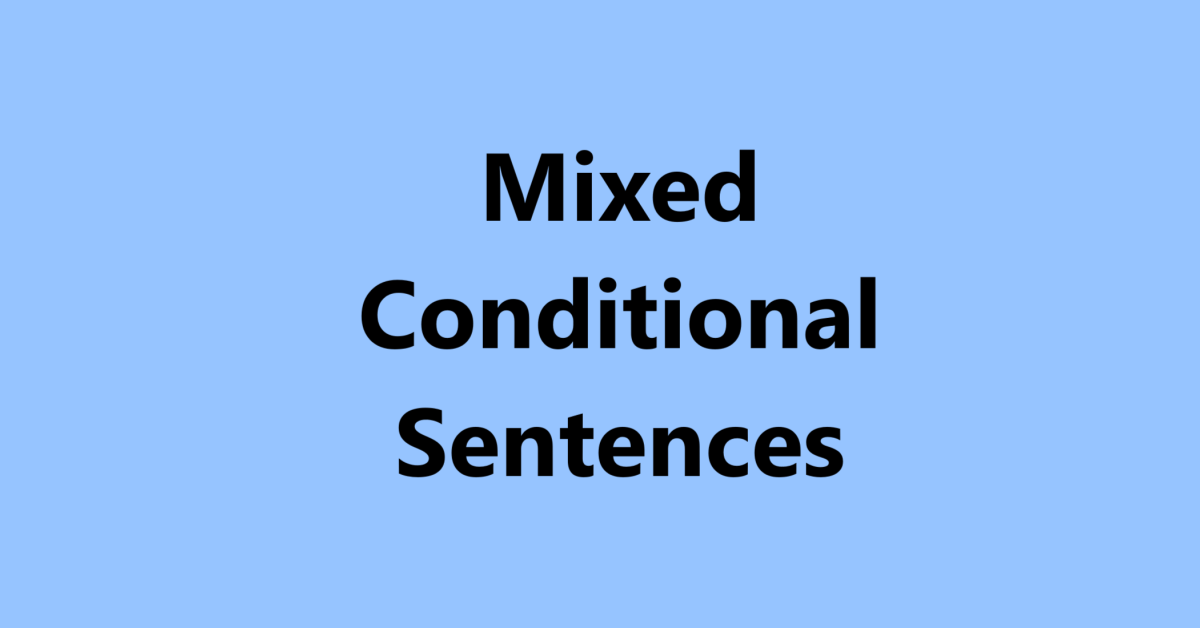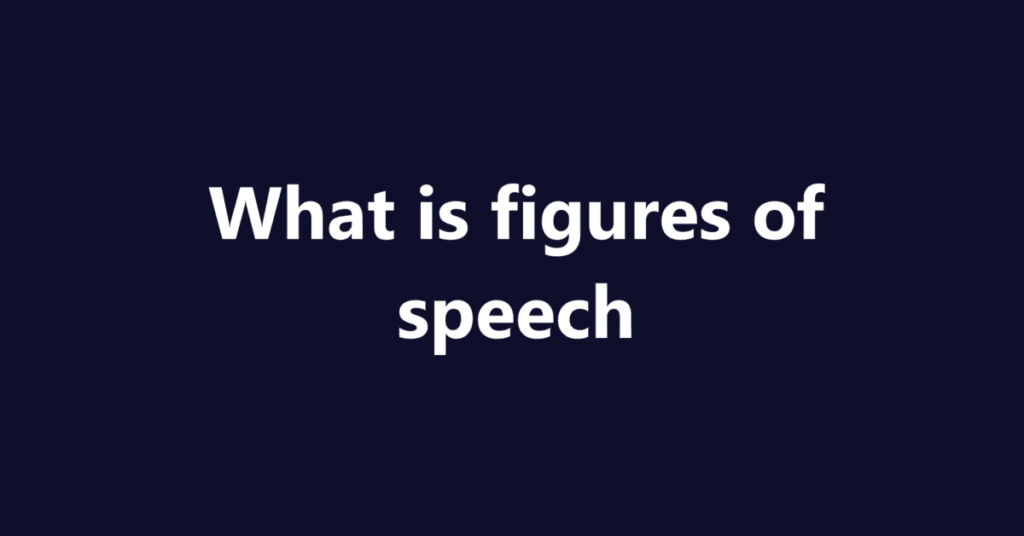Mixed conditional sentences combine elements from different types of conditional sentences to express situations in the present that are a result of past actions or situations. They allow speakers to reflect on how past choices influence present realities, or how current hypotheticals would affect the past. Here’s a comprehensive overview of mixed conditionals.
Structure of Mixed Conditionals
There are primarily two types of mixed conditionals:
- Present Result of a Past Condition
- If-clause (past perfect) + Main clause (would + base form)
- This structure is used when a past condition has present results.
- Example: If I had studied harder in school (past), I would have a better job now (present).
- Past Result of a Present Condition
- If-clause (simple present) + Main clause (would have + past participle)
- This structure is used when a present condition has consequences in the past.
- Example: If I were more organized (present), I would have finished the project on time (past).
Examples
Present Result of a Past Condition
- If I had taken that job offer, I would be living in a different city now.
- If she had gone to medical school, she would be a doctor today.
Past Result of a Present Condition
- If I were more adventurous, I would have gone skydiving last summer.
- If he were better at math, he would have passed his exams.
Usage
Mixed conditionals are ideal for:
- Explaining how past decisions affect the present: Reflecting on choices that lead to current circumstances.
- Imagining how current situations might have changed past outcomes: Considering how different behaviors or actions might have led to different past situations.
Common Mistakes
- Tense Confusion: Ensure the if-clause and main clause use the correct tenses.
- Incorrect: If I would have known, I would be happier now.
- Correct: If I had known, I would be happier now.
- Using “was” instead of “were” for hypotheticals in the if-clause:
- Incorrect: If I was more confident, I would have spoken up.
- Correct: If I were more confident, I would have spoken up.
Questions in Mixed Conditionals
You can also formulate questions using mixed conditionals:
- If you had known you would be successful, what would you have done differently?
- If you were not so busy now, how would you have spent your last weekend differently?
Summary
Mixed conditionals are versatile tools in English that allow us to connect the past with the present (or vice versa) in meaningful ways. They provide the ability to express complex ideas about regret, hypothetical situations, and reflections on life choices.
Mixed conditionals are powerful tools for expressing complex relationships between past and present situations. They can convey feelings of regret, desires, or the impact of past decisions on current realities.
Exercises
Here are some activities to practice mixed conditional sentences:
Exercise 1: Fill in the Blanks
Complete the following sentences using the correct forms to create mixed conditional sentences.
- If I _______ (hear) the news earlier, I _______ (come) to the meeting.
- If she _______ (be) more responsible, she _______ (not forget) my birthday last year.
- If they _______ (take) the other route, they _______ (not get) stuck in traffic now.
- If I _______ (be) better at cooking, I _______ (impress) my friends at dinner last week.
- If we _______ (plan) the trip together, we _______ (have) a lot of fun last summer.
Answers for Exercise 1:
- had heard / would have come
- were / wouldn’t have forgotten
- had taken / wouldn’t be stuck
- were / would have impressed
- had planned / would have had
Exercise 2: Rewrite the Sentences
Transform these sentences into mixed conditional sentences based on the prompts provided.
- I didn’t exercise last year. (I feel unhealthy now.)
- If I had exercised last year, I would feel healthier now.
- She didn’t invest in that company. (She has more money now.)
- If she had invested in that company, she would have more money now.
- They didn’t attend the meeting. (They are confused now.)
- If they had attended the meeting, they wouldn’t be confused now.
- He is not studying hard. (He will fail the exam.)
- If he were studying hard, he wouldn’t fail the exam.
- I didn’t take the opportunity. (I regret it now.)
- If I had taken the opportunity, I wouldn’t regret it now.
Exercise 3: Create Your Own Sentences
Write original mixed conditional sentences based on the following prompts.
- Choosing a different career:
- If I had chosen a different career, I would be working in a more satisfying job now.
- Learning a language:
- If I were fluent in Spanish, I would have traveled to South America last year.
- Spending more time with family:
- If I had spent more time with my family, I would feel more connected to them now.
- Living in another country:
- If I were living abroad, I would have experienced a different culture last year.
- Developing a hobby:
- If I had developed my writing skills, I would be publishing books now.
Exercise 4: Multiple Choice
Choose the correct answer to complete each mixed conditional sentence.
- If I _______ (had/have) more time last week, I _______ (would have/would) finished the project.
- a) had / would have
- b) have / would
- If she _______ (were/were not) so shy, she _______ (would meet/would have met) new people last year.
- a) were / would meet
- b) were not / would have met
- If they _______ (had/have) taken that class, they _______ (would be/would have been) more prepared now.
- a) had / would be
- b) have / would have been
Answers for Exercise 4:
- a) had / would have
- a) were / would meet
- a) had / would be
More Detailed Examples of Mixed Conditionals
Present Result of a Past Condition
- Example 1: If I had learned to play the piano as a child, I would be able to perform at concerts now.
- Example 2: If she had taken that internship, she would be working for a major company right now.
Past Result of a Present Condition
- Example 1: If he were more disciplined, he would have completed his project on time last month.
- Example 2: If I were more outgoing, I would have made more friends at the conference last year.
Expanded Exercises
Exercise 5: Match the Clauses
Match the first part of each mixed conditional sentence with its appropriate second part.
- If she had planned her schedule better,
- If I were an expert in coding,
- If they had invested in stocks,
- If he were more health-conscious,
- If we had taken that earlier flight,
Options:
a) we would not have been delayed.
b) she would not be struggling with deadlines now.
c) he would have competed in the Olympics.
d) I would be working on exciting tech projects.
e) they would have a lot more money right now.
Answers:
1 – b
2 – d
3 – e
4 – c
5 – a
Exercise 6: Sentence Transformation
Transform the following sentences into mixed conditional sentences:
- She isn’t applying for scholarships now. (She won’t afford college.)
- If she were applying for scholarships, she wouldn’t have to worry about affording college.
- I forgot to send the email yesterday. (I feel unprepared for the meeting now.)
- If I had sent the email yesterday, I wouldn’t feel unprepared for the meeting now.
- He doesn’t practice enough. (He didn’t get the role in the play.)
- If he practiced more, he would have gotten the role in the play.
- They are not going to the party (They miss seeing their friends now.)
- If they were going to the party, they wouldn’t miss seeing their friends now.
- I didn’t learn another language. (I wish I had traveled more last year.)
- If I had learned another language, I would have traveled more last year.
Conversations Using Mixed Conditionals
Try having a conversation with a partner (or even just writing it out) where you can ask and answer questions using mixed conditionals:
- Question: If you had started your hobby earlier, what would you be doing with it now?
- Response: If I had started painting earlier, I would be showcasing my artwork in galleries now.
- Question: How would your life be different if you had moved to a new city?
- Response: If I had moved to a new city, I would be experiencing a different culture now.
- Question: If you were more spontaneous, what unusual thing would you have done last weekend?
- Response: If I were more spontaneous, I would have gone on a road trip last weekend.
- Question: What would you have accomplished if you had studied more in school?
- Response: If I had studied more in school, I would be pursuing a graduate degree now.
- Question: If you had learned a skill last year, what would you be using it for right now?
- Response: If I had learned photography last year, I would be taking pictures for events now.
Practice with Scenarios
Use the following scenarios to create your own mixed conditional sentences:
- Scenario: You missed an important deadline.
- Possible sentence: If I had managed my time better, I would feel more confident about my work now.
- Scenario: You are afraid of heights but wish you had tried bungee jumping.
- Possible sentence: If I weren’t afraid of heights, I would have gone bungee jumping last summer.
- Scenario: You don’t have a pet, but you often think about how much joy you would get from one.
- Possible sentence: If I had adopted a dog, I would have a companion now.
- Scenario: You always wanted to learn a musical instrument but never got around to it.
- Possible sentence: If I had taken up the guitar, I would be playing in a band now.
- Scenario: You were shy during school and didn’t participate in plays, but you wish you had acted.
- Possible sentence: If I were not so shy, I would have participated in school plays.
FAQs on Mixed Conditional Sentences
Here’s a list of frequently asked questions (FAQs) regarding mixed conditional sentences, along with clear answers to help clarify concepts and usage.
1. What are mixed conditional sentences?
Mixed conditional sentences combine two different types of conditionals. They express a past condition with a present result or a present condition with a past result. This allows speakers to reflect on how past actions influence the present or how current situations could have changed past outcomes.
2. What is the structure of a mixed conditional sentence?
There are two main structures for mixed conditionals:
- Present Result of a Past Condition:
If + past perfect (had + past participle) + would + base form- Example: If I had studied harder, I would be in a better job now.
- Past Result of a Present Condition:
If + simple present (were, was) + would have + past participle- Example: If I were more organized, I would have finished my work on time.
3. When should I use mixed conditionals?
You should use mixed conditionals when you want to express scenarios where a past situation impacts the present or a present situation impacts a past outcome. They are ideal for conveying regrets, hypothetical situations, and complex relationships between timeframes.
4. Can I use ‘was’ instead of ‘were’ in mixed conditionals?
Generally, in hypothetical situations, it’s preferred to use “were” instead of “was” with “if” clauses, even for singular subjects.
- Correct: If I were better at math, I would have passed the exam.
- Incorrect: If I was better at math, I would have passed the exam.
This usage is known as the subjunctive mood, which expresses wishes or hypothetical conditions.
5. What is the difference between mixed conditionals and other conditionals?
Standard conditionals (like zero, first, and second conditionals) often describe direct cause-and-effect scenarios. Mixed conditionals allow for a more nuanced relationship between past events and their present outcomes or vice versa. It involves a combination of structures for expressing these relationships.
6. Can mixed conditionals be used in all contexts?
While mixed conditionals are useful in discussions about possible unreal situations and their impacts, they might not fit every context. It’s best to use them when discussing regrets, hypothetical situations, or complex cause-and-effect scenarios.
7. Can you provide examples that illustrate both types?
Sure! Here are examples of each type of mixed conditional:
- Present Result of a Past Condition:
If I had taken that job offer, I would be living in another city now. - Past Result of a Present Condition:
If I were more confident, I would have spoken up during the meeting last week.
8. Is it common to hear mixed conditionals in spoken English?
Yes, mixed conditionals are quite common in spoken English, especially when individuals reflect on past choices and their current situation. They are useful for conveying complex ideas quickly.
9. How can I practice mixed conditionals effectively?
You can practice mixed conditionals through various methods:
- Writing Exercises: Create sentences or paragraphs using mixed conditionals based on different prompts.
- Role Play: Engage in conversations where you ask and answer questions using mixed conditionals.
- Fill-in-the-blank Activities: Complete sentences using appropriate mixed conditional structures.
10. Are there any common mistakes to avoid with mixed conditionals?
Yes, here are a few common mistakes:
- Using the wrong tense: Ensure the if-clause and main clause match the correct conditional structure.
- Confusing “were” and “was”: Use “were” for hypothetical situations with all subjects.
- Forgetting to match past conditions with present results: Ensure your sentences logically connect past actions to present situations.


